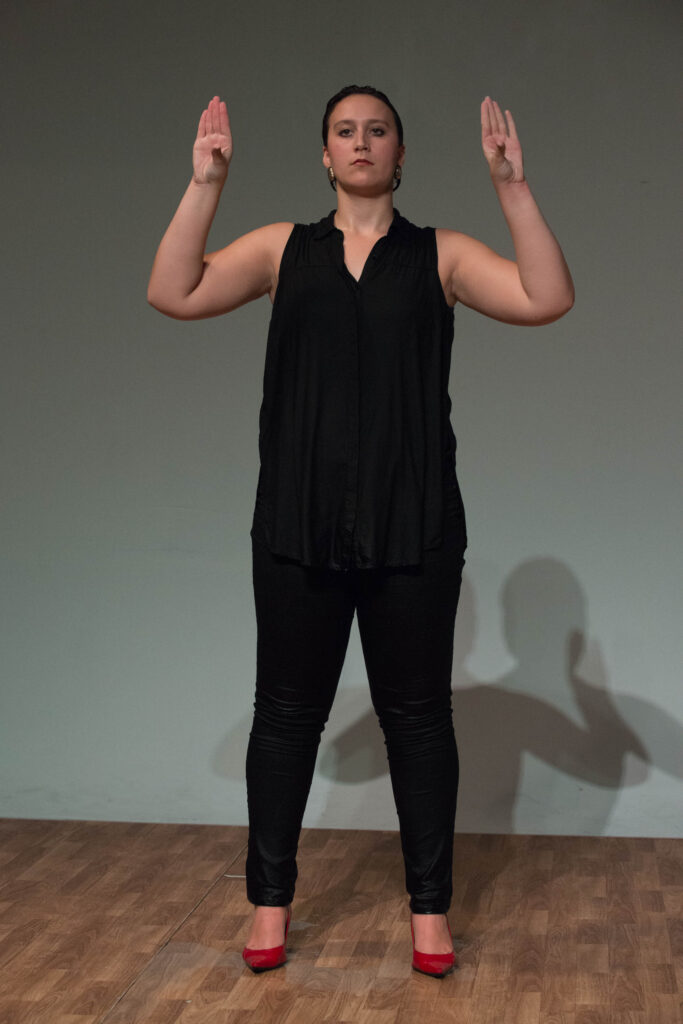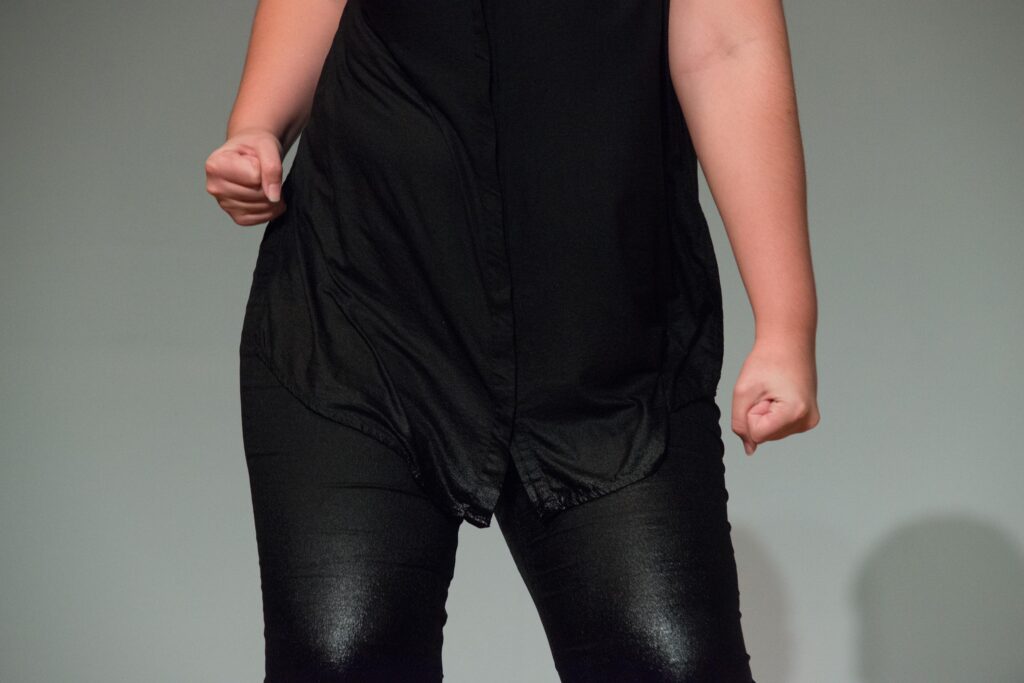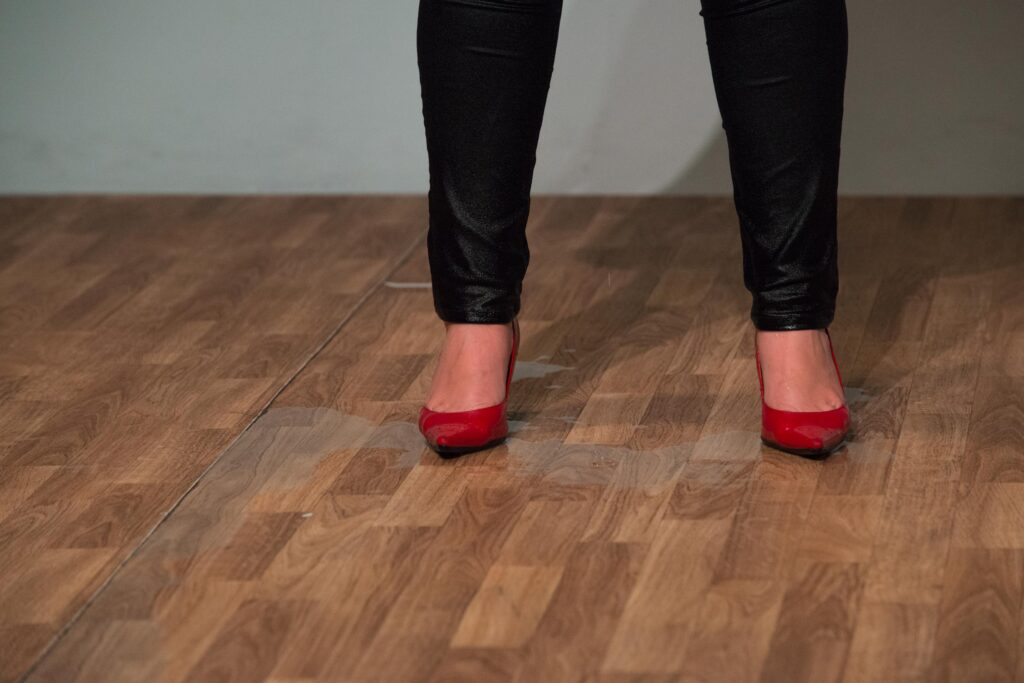By Jessica Karuhanga
Abandon the chicken but continue to dance

Brianna MacLellan enters the stage. She is wearing a black blouse, black pants, slicked back hair and she is soaking wet in red heels. Her hair and her clothing glisten in the spotlight. She turns to face the audience poised and gazing into some distant horizon. She holds this stance. After a few minutes MacLellan calmly says, “Maybe it was like this,” then yells, “Hey Stan!” There is a pause.“It was like that.” Her lips close as she returns to her standing position. Her lips remain pursed and water falls slowly to her feet. A few more moments pass and she says, “Maybe it was like this,” and contorting her lips into a smirk she yells, “Hey Stan!” She returns back to her position, “It was like that.” The room falls silent except for the faint sounds of drips and breathing that are increasingly palpable flushed against her posture. “Maybe it was like this – Hey Stan!” She pauses. “It was like that.” She begins to wind her hips. She delivers an oral and visual pattern over and over. Each utterance and hip sway attempts to follow the previous moment but each delivery shifts in inflection, mood and tone. There is an implication of longing to arrive at some distant memory. Perhaps this memory is lodged somewhere before her gaze. There is a desire on the part of the audience to grasp this object she alludes to and to eventually witness her return to this site. For the audience witnessing her exclamations for the first time this potential moment is articulated more accurately as an arrival. But, as I contemplate this exchange of witnessing and performing further, perhaps return and arrival are the same thing? The water dripping off her body expands into a foreboding puddle around her feet. Each phrase chases the tail of its predecessor and reveals a futility. There is humour, sadness and honesty is this revelation. Repetition is fallacy. “Maybe it was like this,” then MacLellan begins to do the chicken dance. This signals a turn. She repeats this poetry. There is something striking about this well-known choreography when it is displaced from its root. She has removed the dance score from an original context and site and re-contextualized the score as material and form. What does it mean to abandon the chicken? Is it to let go? Is it to admit and surrender to the futility of repetition? Do you let go and omit some or all of the elements? The puddle now envelops her. The water has whitened the wooden floor. When her movements expire she exits leaving the ghost of her dance.


